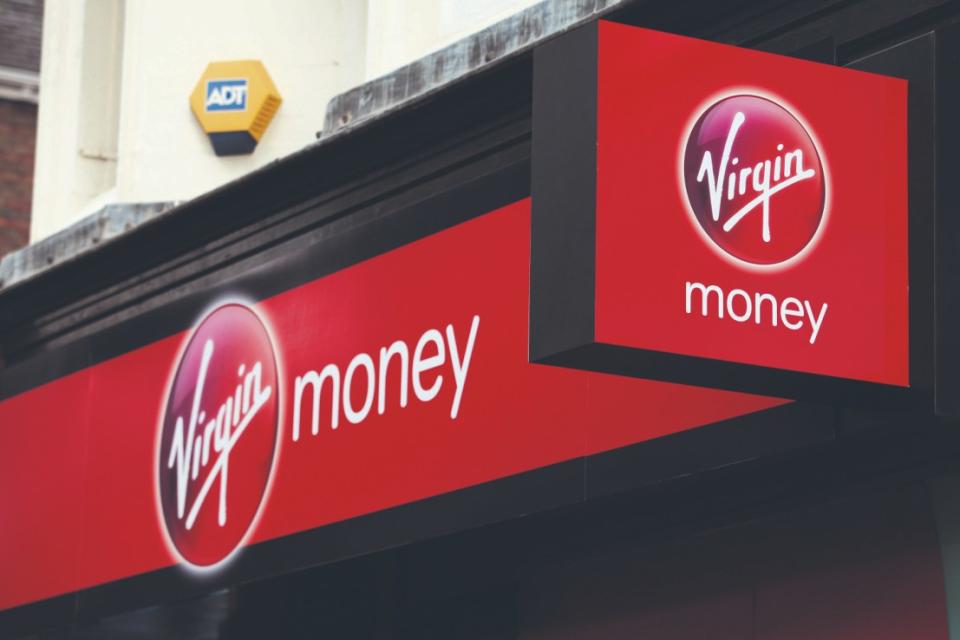Virgin Money reports ‘subdued market’ for mortgage lending as higher rates put off borrowers

Virgin Money has reported lending growth across its target areas but a downtick in mortgage balances as it prepares for a mega-merger with Nationwide.
In an unaudited trading update, Virgin Money said its customer loans remained “stable” at £72.7bn during the six months to 31 March.
It said five per cent growth across its target lending segments of business and unsecured lending was offset by mortgage balances falling two per cent during the six months to £56.6bn.
The bank said this decline reflected a “subdued market” and noted that application volumes had improved since the start of 2024.
Intense competition and looming base rate cuts from the Bank of England have put pressure on banks’ margins in recent months as they are forced to offer homebuyers more attractive deals.
Meanwhile, Virgin Money’s customer deposits were two per cent higher at £68.2bn over the six months.
Virgin Money, Britain’s sixth-biggest high street bank, agreed to a £2.9bn takeover from Nationwide, the UK’s largest building society, in March.
The deal has gone to a vote among Virgin Money’s shareholders, requiring at least 75 per cent approval. The result of the vote will be announced next Wednesday (22 May).
Virgin Money, like many other mid-sized high street banks, kickstarted a cost-saving programme earlier this year aiming to deliver £200m of annualised savings through job cuts and shifting to digital services.
The bank said in February that it had laid off some 150 staff during its first quarter and expected more job cuts during 2024, but said on Tuesday that in light of the Nationwide deal, it had “deferred certain restructuring activity”.
Because of the deal, Virgin Money has cancelled a roughly £87m unutilised portion of its £150m share buyback programme announced last November. It does not plan to announce any further buybacks or dividends.
Its net interest margin (NIM), a measure of the difference between what banks pay out and receive in interest payments, improved in its second quarter compared to the first quarter, which Virgin Money said was supported by effective interest rate adjustments in its credit cards portfolio that reflected “strong customer activity”.
The bank expected NIM for the six-month period to be at the “upper end” of the 190 to 195 basis point range it previously guided for the full-year.
Virgin Money reaffirmed its full-year guidance on Tuesday, with between five and 10 per cent lending growth across its target segments and lower NIM in the second half of the year partly due to “ongoing competition and lower interest rates”.
Tuesday’s update was unaudited as PwC has given notice that it will resign as Virgin Money’s auditors over “potential conflicts of interest” from the Nationwide deal, being replaced by EY.
Virgin Money chief executive David Duffy, who is set to retire after the Nationwide deal, said: “Over the first six months, we have continued to deliver on our strategic ambitions in line with expectations.
“While we expect there to be headwinds through the second half of the year, we remain well placed to deliver growth in our target segments.”

 Yahoo Finance
Yahoo Finance 